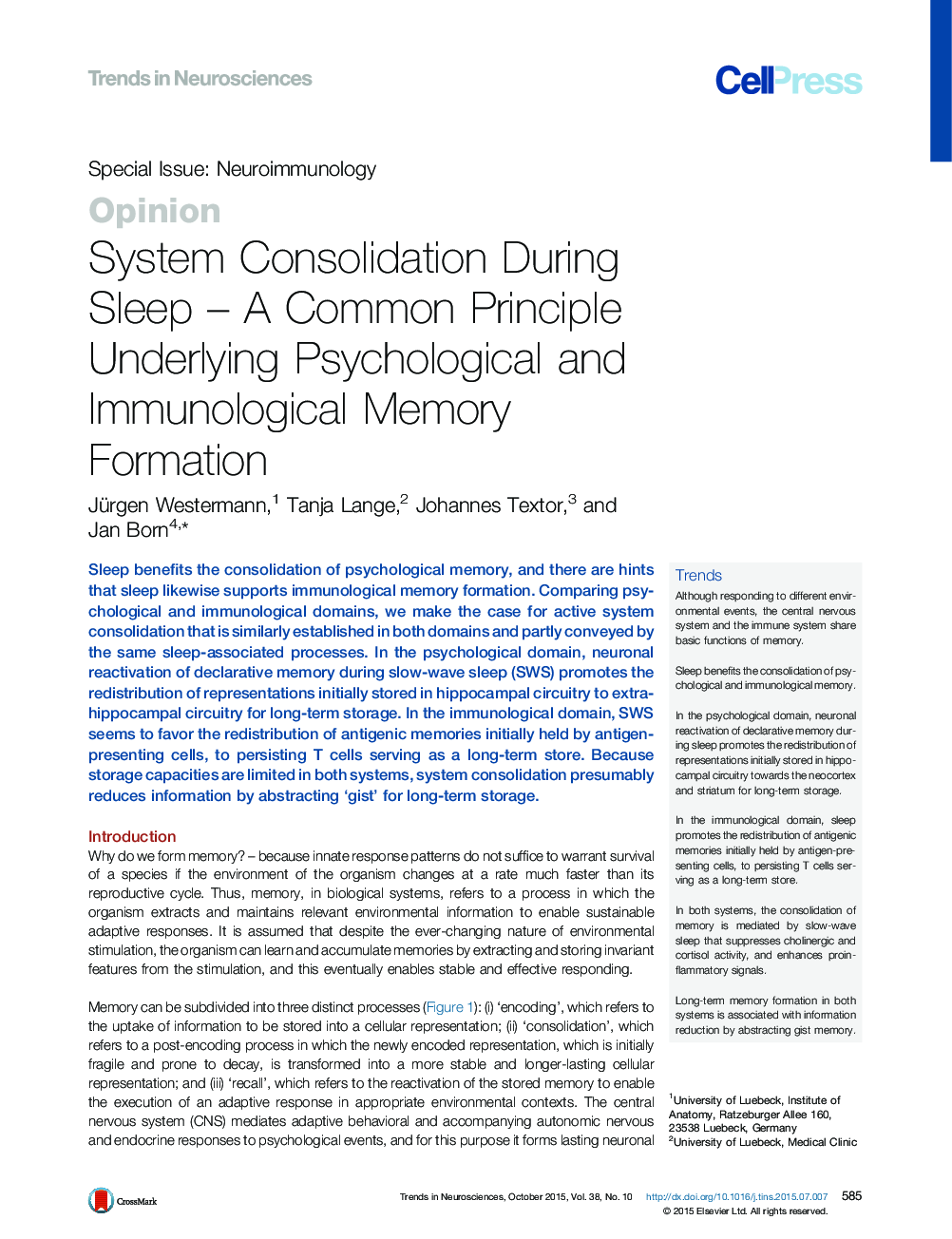| Article ID | Journal | Published Year | Pages | File Type |
|---|---|---|---|---|
| 4354106 | Trends in Neurosciences | 2015 | 13 Pages |
Sleep benefits the consolidation of psychological memory, and there are hints that sleep likewise supports immunological memory formation. Comparing psychological and immunological domains, we make the case for active system consolidation that is similarly established in both domains and partly conveyed by the same sleep-associated processes. In the psychological domain, neuronal reactivation of declarative memory during slow-wave sleep (SWS) promotes the redistribution of representations initially stored in hippocampal circuitry to extra-hippocampal circuitry for long-term storage. In the immunological domain, SWS seems to favor the redistribution of antigenic memories initially held by antigen-presenting cells, to persisting T cells serving as a long-term store. Because storage capacities are limited in both systems, system consolidation presumably reduces information by abstracting ‘gist’ for long-term storage.
TrendsAlthough responding to different environmental events, the central nervous system and the immune system share basic functions of memory.Sleep benefits the consolidation of psychological and immunological memory.In the psychological domain, neuronal reactivation of declarative memory during sleep promotes the redistribution of representations initially stored in hippocampal circuitry towards the neocortex and striatum for long-term storage.In the immunological domain, sleep promotes the redistribution of antigenic memories initially held by antigen-presenting cells, to persisting T cells serving as a long-term store.In both systems, the consolidation of memory is mediated by slow-wave sleep that suppresses cholinergic and cortisol activity, and enhances proinflammatory signals.Long-term memory formation in both systems is associated with information reduction by abstracting gist memory.
